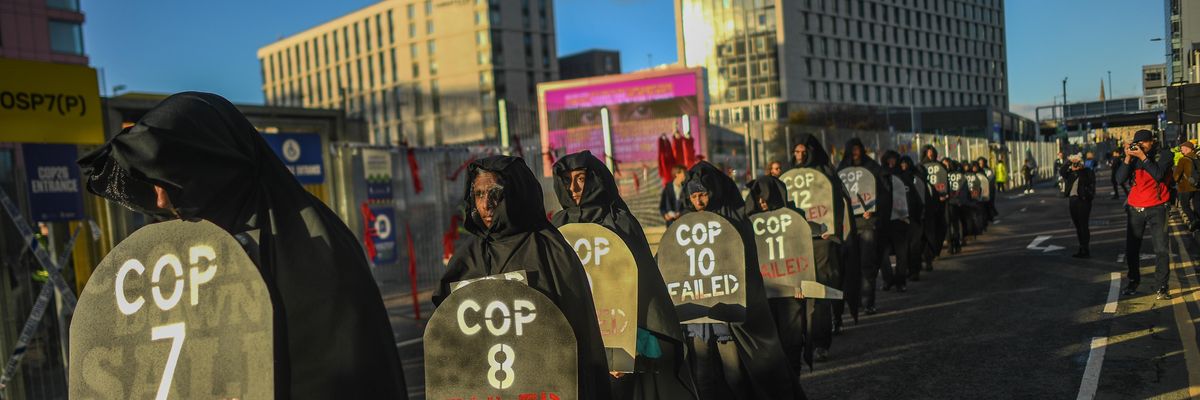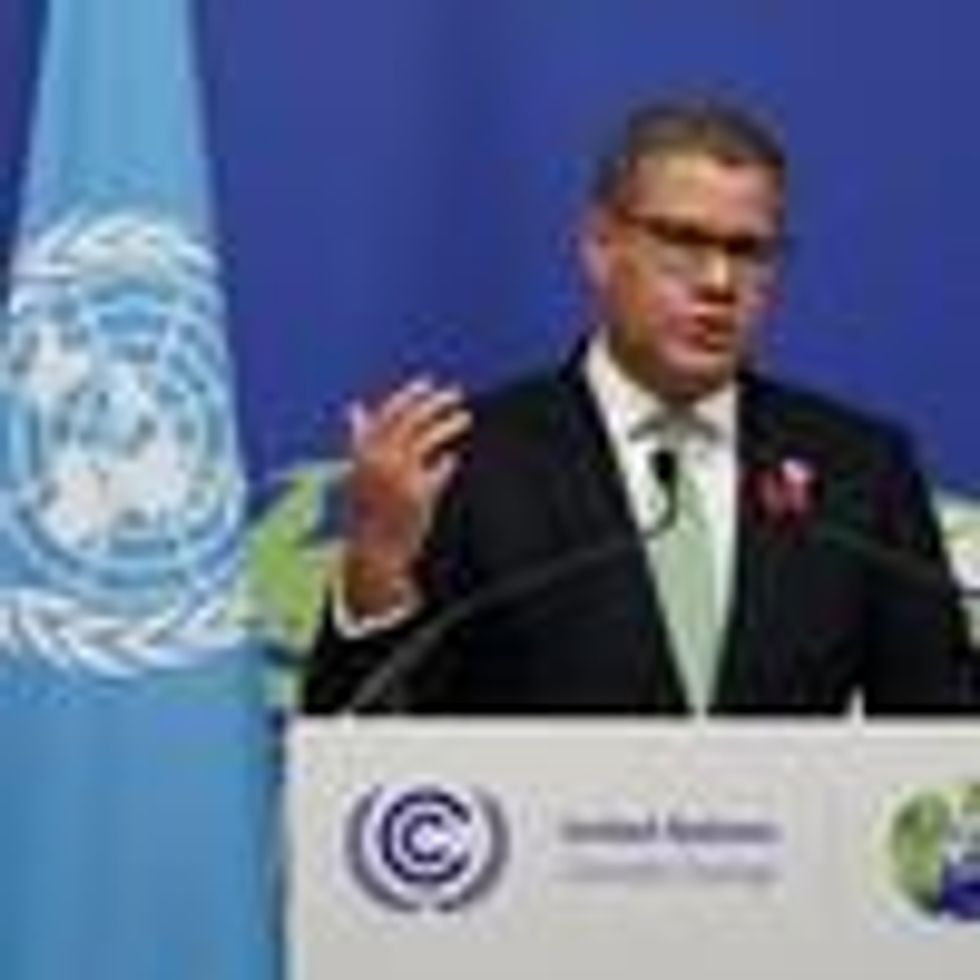An independent group of former leaders and human rights champions known as The Elders expressed concern Monday that humanity could be "on course for a 2.4degC world" in response to the paltry agreement reached by nearly 200 countries over the weekend at the COP26 climate summit.
"While millions around the world are already in crisis, not enough leaders were in crisis mode."
"This represents a failure of leadership and a failure of diplomacy," the group said in a statement. "World leaders must be held accountable for the climate disaster playing out on their watch."
The group, founded by the late Nelson Mandela and chaired by former Irish President Mary Robinson, gave its assessment after COP26--the United Nations climate summit in Glasgow, Scotland--concluded a day late with a pact that climate and social justice activists widely criticized as insufficiently bold.
Positive steps were taken along the two-week march to the Glasgow Climate Pact, The Elders said, referencing efforts like the launch of an alliance to end oil and gas use and a pledge to end deforestation.
Yet the summit--where fossil fuel lobbyists had a larger presence than any single country--still fell well short of meeting the ambition needed to limit warming to 1.5degC by 2030, said the group, singling out "G20 countries that have not significantly increased their 2030 emission reduction targets, such as Australia, Brazil, China, Mexico and Russia." They also pointed to India's push to water down language from phasing "out" coal to phasing it "down."
The United Nations chief, they said, must put "relentless pressure on the worst-performing states" to keep hopes of reaching the 1.5degC target alive.
Urgently needed is "more decisive action in the next few years" by historic polluters, the group added.
According to Robinson, commitments made at COP26 were "nowhere near enough to avoid climate disaster. While millions around the world are already in crisis, not enough leaders were in crisis mode."
"People will see this as a historically shameful dereliction of duty," she said.
Related Content
As Climate Summit Ends, Activists Say 'Hollowed-Out' Deal Leaves 1.5degC Goal 'On Life Support'
Jessica Corbett
The Glasgow agreement calls on parties to come back next year at COP27 with strengthened emissions targets for 2030, which Robinson said represents a "window of opportunity to avert the worst of the climate crisis." That could set the course away from the 2.4degC increase by the end of the century which researchers at Climate Action Tracker estimate current pledges will lead.
In a Monday tweet, Swedish climate activist Greta Thunberg suggested that real hope for addressing the planetary emergency lies not within the confines of conference halls but in ordinary people across the world.
"A reminder: the people in power don't need conferences, treaties, or agreements to start taking real climate action," wrote Thunberg. "They can start today."
"When enough people come together then change will come and we can achieve almost anything," she continued. "So instead of looking for hope--start creating it."

